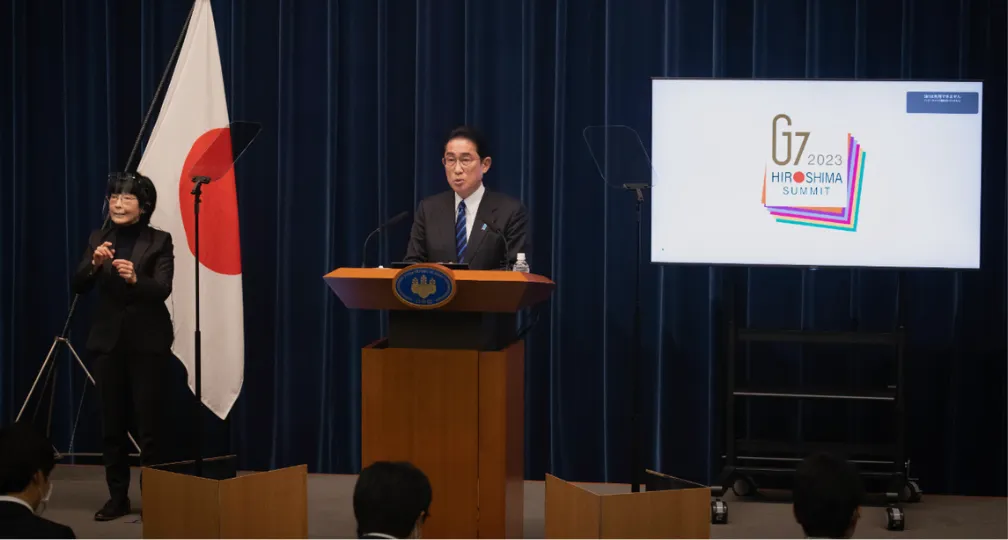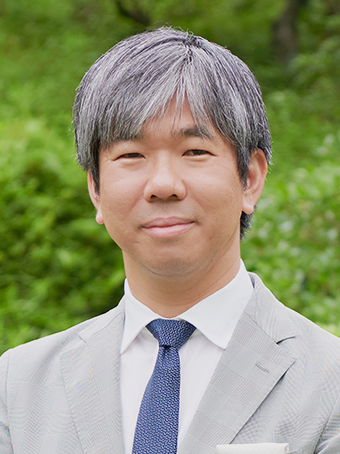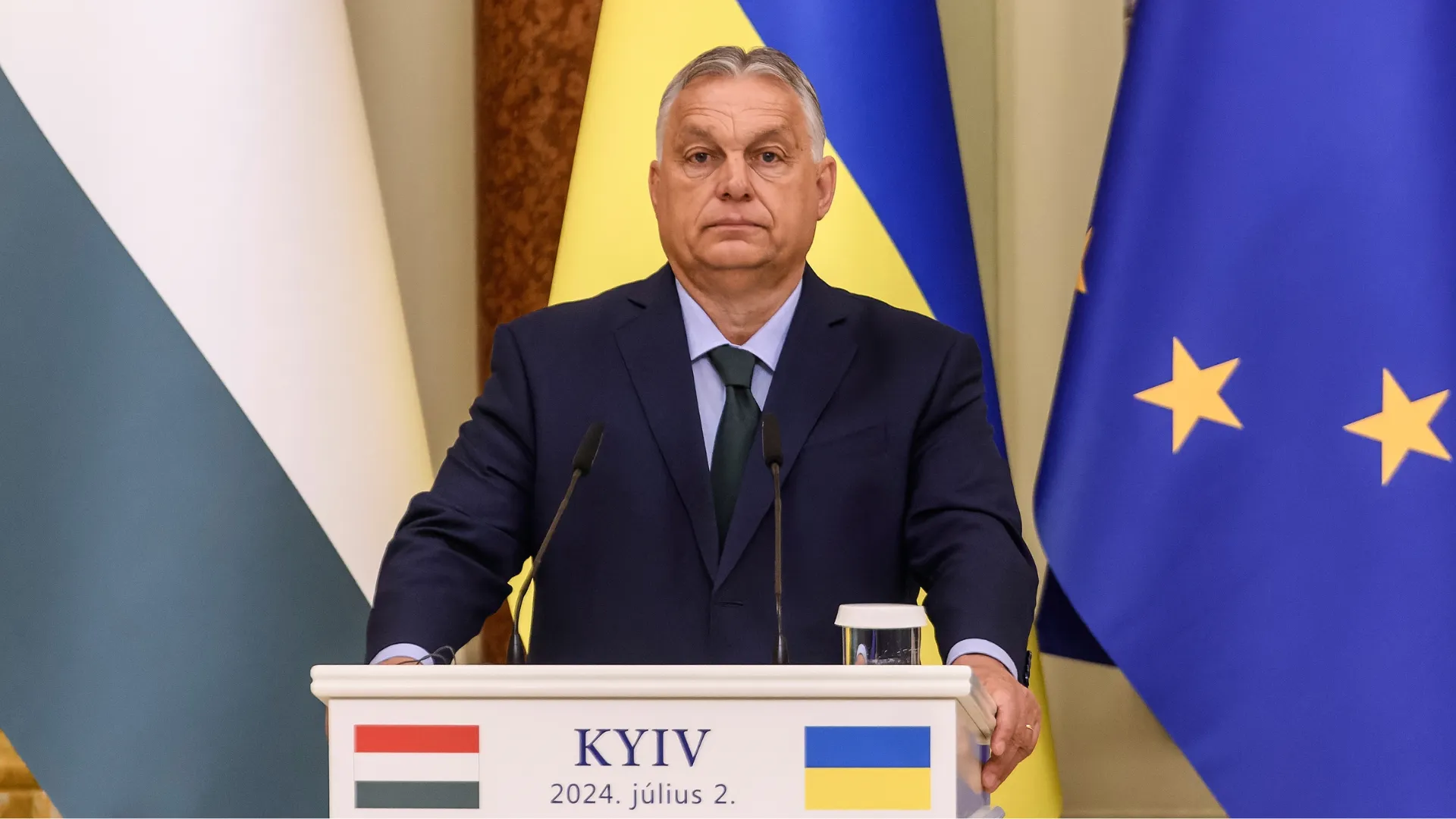Why Japan and the G7 must take notice of the Global South

The most pressing issue will be for G7 leaders to show their commitment to uniting and continuing to support Ukraine. However, the ties among G7 nations and the group’s global influence are not necessarily self-evident. Japan must make efforts to demonstrate these.
Growing significance of G7
In the past 40 years or so, the G7’s presence in the global economy has constantly been declining due to the stable economic growth of emerging countries in regions such as Asia and Africa.
The G7 countries occupied 61% of the global economy in 1980, but that proportion dropped to 43% in 2021.
Furthermore, among the Group of 20 nations, if you compare the combined gross domestic product of the G7 major industrialized countries — Britain, Canada, France, Germany, Italy, Japan and the United States — with the combined GDP of the so-called Emerging Seven (E7) countries — Brazil, China, India, Indonesia, Mexico, Russia and Turkey — the G7 was 3.2 times bigger than the E7 in 2008 when the G20 was set up. But it is estimated that the GDP of the E7 will exceed that of the G7 in 2030.
The G7’s shrinking share of the global economy inevitably means the group’s influence will weaken.
However, it is also true that the value of the G7 is being recognized again.
This is because the U.N. Security Council is not functioning fully to stop Russia’s invasion of Ukraine, with Moscow having veto powers over any resolution put to the U.N. as one of the five permanent members of the council.
It has also become extremely difficult for the G20, in which Russia has a voice to some extent, to come to a consensus on a clear policy.
Amid the rise of authoritarian regimes, unity among the G7 countries, with their shared values, has become increasingly significant.
With the war in Ukraine hitting a deadlock and a large-scale attack by the Russian military being feared, it is becoming ever more important for the G7 to demonstrate a clear commitment to continue providing aid to Ukraine and to make sanctions against Russia more effective.
In such circumstances, under what policies is Japan working in its hosting of the G7 summit?
Prime Minister Fumio Kishida and Foreign Minister Yoshimasa Hayashi have used the terms “international order based on the rule of law” and “free and open international order” to describe what Japan is aiming for.
While U.S. President Joe Biden’s administration often addresses democracy as a basic principle, including hosting the Summit for Democracy, such moves by the U.S. would result in excluding nondemocratic countries in Asia and Africa, drawing a new divide in the international society.
To gain support from a broader range of countries, it would be better to put up a slogan on the rule of law rather than the ideology of democracy.
It is important for Japan’s diplomacy to promote such an inclusive approach in an increasingly divided international community.
Kishida, in his policy speech to the Lower House on Jan. 23, said: “Attempts to unilaterally change the status quo by force must not be tolerated, no matter in which region of the world they occur. Taking the occasion of the G7 Hiroshima Summit, we will convey once more to the international community our strong political will to uphold the free and open international order based on the rule of law, which adheres to this principle.”
It is crucial for Japan to pass down this message, to be given at the G7 summit in Hiroshima in May, to the G20 summit to be hosted by India in the fall.
Kishida also said, “In order for the international community as a whole to act in cooperation in responding to the various challenges now facing the world, the G7 will unite and work to strengthen its engagement with what is often called the Global South,” referring to emerging and developing countries mainly located in the Southern Hemisphere.
Cooperating with the Global South
Cooperation between the G7 and the Global South will be the cornerstone of sending out a strong message to the international community in a bid to make Russia’s invasion of Ukraine unsuccessful.
Countries like Indonesia, which was last year’s G20 chair, and India, this year’s G20 chair, have grown to exert a great influence on the global society. They can be regarded as major core powers of the Global South.
Because Japan has historically maintained a friendly relationship with both Indonesia and India, Tokyo can therefore play an important diplomatic role.
India, which is aware of its position as a leading power among emerging and developing countries, hosted the online Voice of Global South Summit on Jan. 12 and 13, which involved more than 120 countries, in a bid to utilize the G20 presidency to amplify the voice of the Global South.
“We, the Global South, have the largest stakes in the future. Three-fourth of humanity lives in our countries,” Indian Prime Minister Narendra Modi said at the conference, indicating his confidence that the country will play a leadership position in the coming era.
The G7 countries are exploring ways to expand their relations with the Global South, whose presence is growing.
In a speech on Jan. 13 in Washington, Kishida said, “If the (countries of the) Global South, holding integral places in the international arena, turn their back, we will find ourselves in the minority and unable to resolve mounting policy issues.”
During the Munich Security Conference held in mid-February, French President Emmanuel Macron said he was “shocked by how much credibility we are losing in the Global South,” suggesting a decline in the presence of France and the G7.
Foreign Minister Yoshimasa Hayashi’s visit to four Latin American countries, including Brazil, in January clearly indicates Japan’s intention to seek cooperation from the Global South.
Memories of colonial rule
For many countries of the Global South, the key challenges are to maintain economic growth and stabilize their political systems.
They might have negative feelings toward cooperating with Western nations because of memories of the colonial era.
In requesting Global South countries to uphold the international order based on the rule of law and to cooperate with the G7 in backing Ukraine, it should not be taken for granted that they will offer broad and strong support.
Rather, Japan should make efforts to understand precisely what each of the countries are looking for, recognize the diversity of the international community and make specific contributions to that end.
The war in Ukraine is at a stalemate. There are no signs of Ukraine or Russia compromising or suspending hostilities.
If the war is to continue for another five or 10 years, it will be difficult for industrialized democracies like those of the G7 alone to continue providing assistance to Ukraine.
Aid to Ukraine
On Feb. 23, ahead of the first anniversary of the Russian invasion of Ukraine, the U.N. General Assembly adopted a new resolution demanding that Russia withdraw all of its military forces from the territory of Ukraine and calling for a “comprehensive, just and lasting peace in Ukraine,” with 141 member states, including Japan and Western countries, in favor.
However, there were 32 abstentions, including China, India and South Africa.
While a resolution gaining the support of 141 member states can be seen as representing a majority in the global community, winning cooperation from countries like India is essential in pressuring Russia to stop its attacks.
India, however, has maintained a close relationship with Russia as a major buyer of Russian arms, and it traditionally kept to a nonalignment policy, avoiding taking sides in conflicts.
During the Voice of Global South Summit, India showed its stance of including a diverse range of voices in an effort to aim for a multipolar world without having to side with any of the major powers.
It is also necessary to work with India toward creating a broader solidarity, since the country is chairing the G20 summit this year.
The Global South as a concept is ambiguous and is not monolithic, as it is not clear exactly which countries it is made up of and what its basic stance is. It comprises a mixture of so many different voices.
As that is the case, it might be neither wise nor possible for Japan to take in the Global South as one group. It is important to recognize the different voices of the countries of the Global South and listen carefully to each of them.
If major powers unilaterally try to force their ideas of justice and morals onto other countries and push them as a unified view of the global community, it will trigger even stronger resistance from those countries, as they will be reminded of colonial rule.
It will be appropriate to adopt Japan’s mild approach of seeking ties among the G7 countries while simultaneously exploring cooperation with the Global South.
The late Masataka Kosaka, who was a professor of international politics at Kyoto University between 1971 and 1996, once said that international society is one, but at the same time many.
What is needed is a stance of speaking with a unified voice as the G7 while respecting a diverse range of voices in the U.N. and the Global South.
(Photo Credit: Stanislav Kogiku / Aflo)

Geoeconomic Briefing
Geoeconomic Briefing is a series featuring researchers at the IOG focused on Japan’s challenges in that field. It also provides analyses of the state of the world and trade risks, as well as technological and industrial structures (Editor-in-chief: Dr. Kazuto Suzuki, Director, Institute of Geoeconomics (IOG); Professor, The University of Tokyo).
Disclaimer: The opinions expressed in Geoeconomic Briefing do not necessarily reflect those of the International House of Japan, Asia Pacific Initiative (API), the Institute of Geoeconomics (IOG) or any other organizations to which the author belongs.

Director, International House of Japan

Group Head, Europe & Americas,
Director of Research, Asia Pacific Initiative
Director, International House of Japan
Yuichi Hosoya is professor of international politics at Keio University, Tokyo. Professor Hosoya was a member of the Advisory Board at Japan’s National Security Council (NSC) (2014-2016). He was also a member of Prime Minister’s Advisory Panel on Reconstruction of the Legal Basis for Security (2013-14), and Prime Minister’s Advisory Panel on National Security and Defense Capabilities (2013). Professor Hosoya studied international politics at Rikkyo (BA), Birmingham (MIS), and Keio (Ph.D.). He was a visiting professor and Japan Chair (2009–2010) at Sciences-Po in Paris (Institut d’Études Politiques) and a visiting fellow (Fulbright Fellow, 2008–2009) at Princeton University. [Concurrent Position] Professor, Faculty of Law, Keio University
View Profile-
 Fed-Treasury Coordination as Economic Security Policy2026.02.13
Fed-Treasury Coordination as Economic Security Policy2026.02.13 -
 What Takaichi’s Snap Election Landslide Means for Japan’s Defense and Fiscal Policy2026.02.13
What Takaichi’s Snap Election Landslide Means for Japan’s Defense and Fiscal Policy2026.02.13 -
 Challenges for Japan During the U.S.-China ‘Truce’2026.02.12
Challenges for Japan During the U.S.-China ‘Truce’2026.02.12 -
 India and EU Sign Mother of All Deals2026.02.09
India and EU Sign Mother of All Deals2026.02.09 -
 Orbán in the Public Eye: Anti-Ukraine Argument for Delegitimising Brussels2026.02.04
Orbán in the Public Eye: Anti-Ukraine Argument for Delegitimising Brussels2026.02.04
 Orbán in the Public Eye: Anti-Ukraine Argument for Delegitimising Brussels2026.02.04
Orbán in the Public Eye: Anti-Ukraine Argument for Delegitimising Brussels2026.02.04 Fed-Treasury Coordination as Economic Security Policy2026.02.13
Fed-Treasury Coordination as Economic Security Policy2026.02.13 When Is a Tariff Threat Not a Tariff Threat?2026.01.29
When Is a Tariff Threat Not a Tariff Threat?2026.01.29 Oil, Debt, and Dollars: The Geoeconomics of Venezuela2026.01.07
Oil, Debt, and Dollars: The Geoeconomics of Venezuela2026.01.07 India and EU Sign Mother of All Deals2026.02.09
India and EU Sign Mother of All Deals2026.02.09












